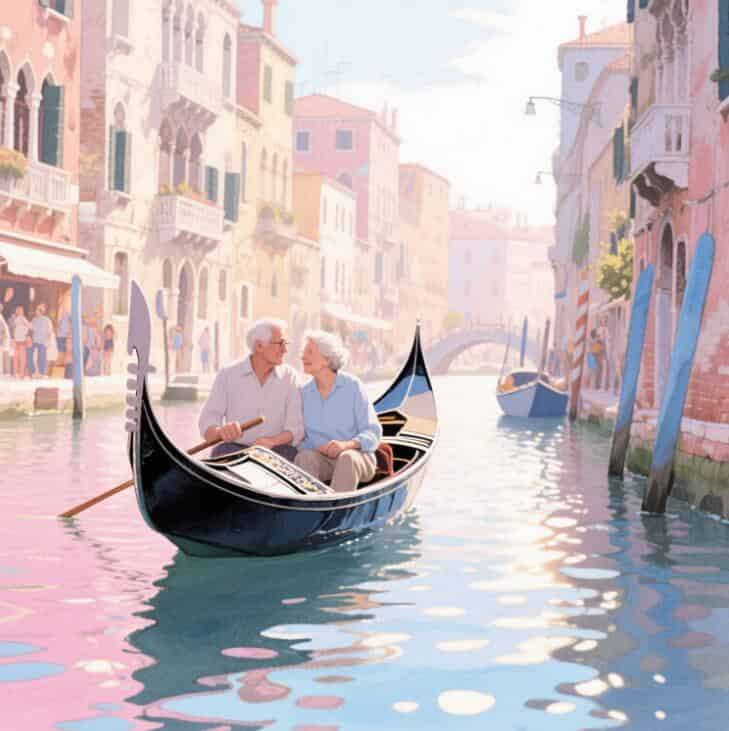In our increasingly digital world, travel remains one of the most profound ways to reconnect with our humanity. Beyond the Instagram-perfect photos and souvenir shopping lies a deeper journey of self-discovery that has captivated explorers for centuries. Modern research now confirms what seasoned travelers have always known – that crossing borders changes us in ways that transcend mere sightseeing.
The Science of Travel Transformation
Neuroscience reveals that travel literally rewires our brains:
• Exposure to new environments increases cognitive flexibility by 25% (Journal of Experimental Psychology, 2023)
• Navigating foreign cities strengthens problem-solving skills equivalent to 6 months of brain training
• Bilingual immersion boosts memory retention and delays cognitive decline
These benefits explain why companies like Google and Apple now offer “travel sabbaticals” as part of their employee development programs. The stimulation of unfamiliar surroundings creates neural pathways that enhance creativity and innovation long after returning home.
Cultural Immersion as the Ultimate Teacher
True travel transformation occurs when we move beyond tourist checklists to authentic engagement:
• Living with a family in rural Vietnam teaches patience and adaptability
• Learning traditional dance in Senegal reveals new forms of self-expression
• Participating in tea ceremonies in Kyoto cultivates mindfulness
Anthropologists note that these immersive experiences create “cultural bridges” – mental frameworks that help us navigate differences with empathy rather than judgment. The traveler who bargains politely in Moroccan souks or observes temple etiquette in Thailand develops social intelligence that translates to better workplace collaboration and leadership.
The Unexpected Gifts of Travel Mishaps
Often, the most valuable lessons come from unplanned moments:
• A missed train in Italy becomes a lesson in patience
• Language blunders in China teach humility and humor
• Lost luggage forces us to reconsider what’s truly essential
Psychologists identify these challenges as “productive discomfort” – stressful in the moment but transformative in retrospect. The ability to navigate uncertainty becomes a life skill that serves travelers well beyond their journeys.
Sustainable Travel in the Modern Age
As awareness grows, travelers are redefining exploration:
• Choosing slow travel over whirlwind itineraries
• Supporting indigenous-owned eco-lodges in Costa Rica
• Participating in coral reef restoration in the Maldives
• Opting for train journeys that reduce carbon footprints
The new generation of travelers seeks experiences that benefit both visitor and host community, recognizing that meaningful travel must be sustainable to remain possible.
Bringing Travel Home
The most profound transformations often appear after returning:
• Newfound appreciation for home comforts
• Adopted habits from abroad (Japanese organization, Mediterranean diet)
• Fresh perspectives on local culture
• Reduced attachment to material possessions
This “reverse culture shock” signals successful integration of travel lessons into daily life. Many find themselves planning simpler, more intentional lives after encountering alternative ways of being abroad.
The Future of Transformative Travel
Emerging trends point toward even deeper experiences:
• Silent retreats in Bhutan’s monasteries
• Astronomy-focused journeys in Chile’s Atacama Desert
• Indigenous-led vision quests in the American Southwest
• Digital detox cruises with strict device limitations
As virtual reality advances, the distinction between physical and digital travel blurs – yet early studies show actual travel produces significantly greater personal growth, suggesting our brains require full sensory immersion for transformation.
Conclusion: Travel as the Ultimate Education
In an age of information overload, travel remains the most visceral form of learning. It teaches economics through Istanbul’s Grand Bazaar, physics via Iceland’s tectonic plates, philosophy in Athens’ ancient agora. More than vacation, it’s an education in what it means to be human across cultures and time.
As Marcel Proust observed, “The real voyage of discovery consists not in seeking new landscapes, but in having new eyes.” The greatest souvenir any traveler can bring home is precisely those new eyes – the expanded perspective that forever changes how we see our world and ourselves within it.
